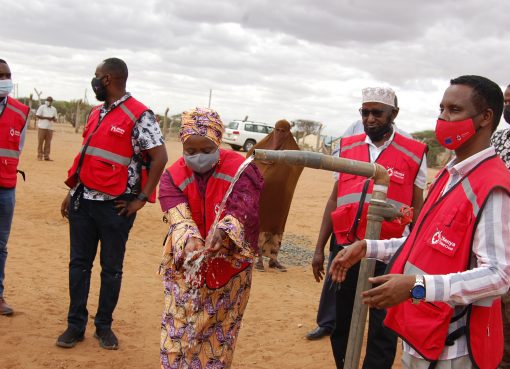The County Government of Nakuru is implementing a range of preventive and promotional measures to address f mental health challenges in work place in a move aimed at improving the well-being of its employees.
The County Mental Health Coordinator Lydiah Nyagah acknowledged that mental health posed a challenge across all departments and underscored the need for immediate action.
Nyagah indicated that they were investing in several mental wellness initiatives that were friendly to employers, while creating an environment that allows workers of all cadres to freely share their personal problems and challenges at workplaces.
She said the county government was providing psycho-educational support to its workers as there was an increasing demand for the services.
“Mental health challenges have a significant impact on productivity within the public service and there is need to take urgent actions to reverse the worrying trends,” explained the Coordinator.
According to the Kenya Mental Health Investment Case, the country incurred losses of Sh62.2 billion due to mental health conditions in work place.
Nyagah spoke during a meeting convened by the office of the chief officer of Administration and devolution that brought together mental health champions from all the departments and the 11 Sub-counties to develop and establish a psycho-social approach to dealing with the mental challenges of staff and management within the County.
The Coordinator suggested that once a mental health was detected or suspected among employees, supervisors should act immediately bearing in mind that such cases ought to be treated as an emergency unlike being a discipline or human resources issue.
While acknowledging that mental health was a serious predicament in the country, she encouraged health workers to consult their superiors, peers, and family members when faced with difficult times, adding that all issues irrespective of their magnitude could be addressed.
She cited some of the Mental health issues such as depression, stress, burnout, anxiety disorders, substance abuse, attention deficit hyperactivity, schizophrenia and bipolar disorder among others, adding that the disorders were a silent pandemic afflicting public servants in large proportions and that majority of them were triggered by both work related and social issues.
To create a healthy workspace, Nyagah advised supervisors to understand the unique opportunities and needs of individual workers and interventions and good practices that protect and promote mental health in the workplace.
She said Governor Susan Kihika’s administration had opened up channels of communication among all cadres of employees as part of ways of detecting any form of stress among them and was always keen to detect any trigger that may lead to depression, stress or mental illness and act immediately.
Nyagah at the same time warned that putting mental health of workers on the back burner means an increase in reported violent crimes, homicides, suicides, gender-based and sexual violence among other crimes.
“Observations with regard to changes in personality of junior staff should be taken seriously by their superiors,” she advised.
According to the coordinator, offering access to counselling services, and mental health days, and incorporating employee assistance programmes can aid employees in their struggles.
One of the most visible manifestations of the mental health challenge is suicide, estimated at about four cases per day by the World Health Organization.
County special programs officer Teresia Yatich, underscored the importance of developing a comprehensive plan for training staff on prevention and identifying problems that will help in reviewing the mental wellness of the affected cases.
She indicated that holding regular inclusive and cohesive meetings, training staff, and offering psychosocial support will improve mental health among staff at the workplace and reduce mental disorders that sometimes lead to suicidal tendencies.
Yatich affirmed that employers have a responsibility to create a supportive workplace culture that promotes the well-being of the mind.
She added that offering flexible work arrangements ccould reduce stress by providing options like remote working, which allows employees to better manage their work-life balance.
Organizations, she suggested, should also provide mental health training for managers and employees to recognize signs of distress and know how to respond to them.
Chairperson of Kenya Counseling and Psychological Association Charles Musambi highlighted the need to embrace open and honest conversations within the family unit.
He explained that seeking professional counselling would help in navigating the complex emotions associated with grief.
Musambi noted that addressing mental health required a multi-pronged approach that involves policies and community initiatives.
A recent study has revealed that many middle and top-level organizations in Kenya, including Government departments and agencies, are populated by workers who are suffering unattended from a wide range of mental illnesses, including depression, stress, anxiety, suicidal thoughts and anger.
By Esther Mwangi




